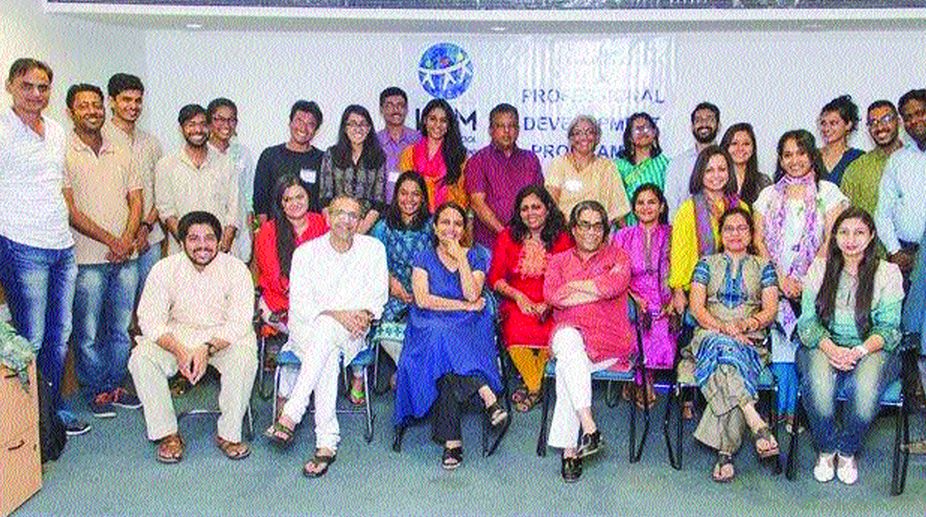The Indian School of Development Management, Delhi, is a non-profit institute focused on creating value driven leaders that aims to facilitate the creation of professional managers. This will make a significant difference to the impact, scale and sustainability of organisations working for the betterment of society. Ravi Sreedharan, founder of ISDM shares about the contribution of the institute and how different it is from other universities. Experts from an interview:
What are the key challenges for management education in India?
Advertisement
Historically, management education finds its origins in industrial revolution and therefore, the US and European universities like Wharton and Harvard became premier centres. In India, IIMs and XLRI were started on similar lines and have played a key and vital role. Arguably, IIMs alone have groomed a significant percentage of talent in the country. Over the past decade, Public Sector Units are attempting to capture these top management brains to lead some of the largest PSUs like ONGC, NTPC and Coal India. Many management professionals today are also taking up social responsible roles through civil services and development consultancies. However, this sector currently faces critical challenges.
A large proportion of professors from these top management institutes do not have the practical experience. They are focused on theoretical perspectives without any engagement with the sector and its workings. Lack of new research has created gap between educational researchers and practitioners. Lack of comprehensive documentation culture like the Harvard Business School’s case study methodology has failed to capture the real life experience of the professionals.
What can ISDM offer that other universities/ institutes can’t?
We are creating a new space within the management education paradigm. India does not have any discipline called “development management” as of now. Our interaction with professionals in the sector, as well as our own experience has provided us the evidence of a need for management practices, systems, structures and processes appropriate for development. We have set out to fill this vacuum and design a programme that is based on real experiences in the social sector and build the body of knowledge for development management.
This body of knowledge will be built through engagement with practitioners. We are envisioning a new approach where development management knowledge will be built by theorising on field experiences, conducting research on the ground, documentation of actual practices, development of case studies, etc. For example, 25 per cent of our course will be spent outside the classroom on the field where students will face real-life development issues.
What are the competitive advantages for your students?
ISDM is born out of a constant and long term discussion with the experienced and respected practitioners in the sector who have felt a dire shortage of development management professionals.
Therefore, the course is carefully crafted to meet specific requirements of this sector. So, students who go through the Development Leadership programme will be equipped to hit the ground running. They will be prepared to move quickly into the work environment and begin contributing in a very short period of time. We are also working with several organisations to create a buy-in, demand and thereby creating job opportunities for all its incoming students. We have already ensured enough jobs for our first batch of students.
Could you share on the programmes structure, content and pedagogy offered?
We have planned out a one-year rigorous academic and field experience. There are three terms that include two weeks of structured field programme in various districts of India, eight weeks of residency with
various prospective employers along with core and elective courses. On the lines of the Australian Qualification Framework, we have created a balance between the Knowledge, Skills and Application components in the programme.
While the first few terms will expose the students to various theoretical perspectives of development, the latter terms will address the management challenges in the development sector. Broadly, the problem-based learning approach is to be followed. This will support students in the journey of building expertise. Therefore, the pedagogy will be largely case-based. Other structured experiences will include film shows, book/article discussions around contemporary news, guest lectures and interactions with practitioners and activists.
What’s your say in regard to acute shortage of professional
management talent in the development sector?
Our interaction with the experts has provided us enough evidence for the acute shortage. This manifests itself into limitations for the various actors in the development space.
While the NGOs struggle to find qualified professional for leadership roles, the funders remain apprehensive to make investments due to the lack of good leadership and management skills. Despite government regulations, organisations fail to effectively utilise the CSR funds in localised development context.
Therefore, this sector needs professionals to improve the quality, sustainability and scalability of impact within the development space.
How do you plan to create an aspirational sector for individuals?
A big part of professionalising development management is the presence of aspirational anchor institutions which help create an entire ecosystem around it. We are focused on building such an innovative, pioneering institution for the future students. Through teaching and research programmes, collaborative/ collective building of the knowledge in the sector, growing the community of professional development managers/leaders, and creating visible impact in organisations.











